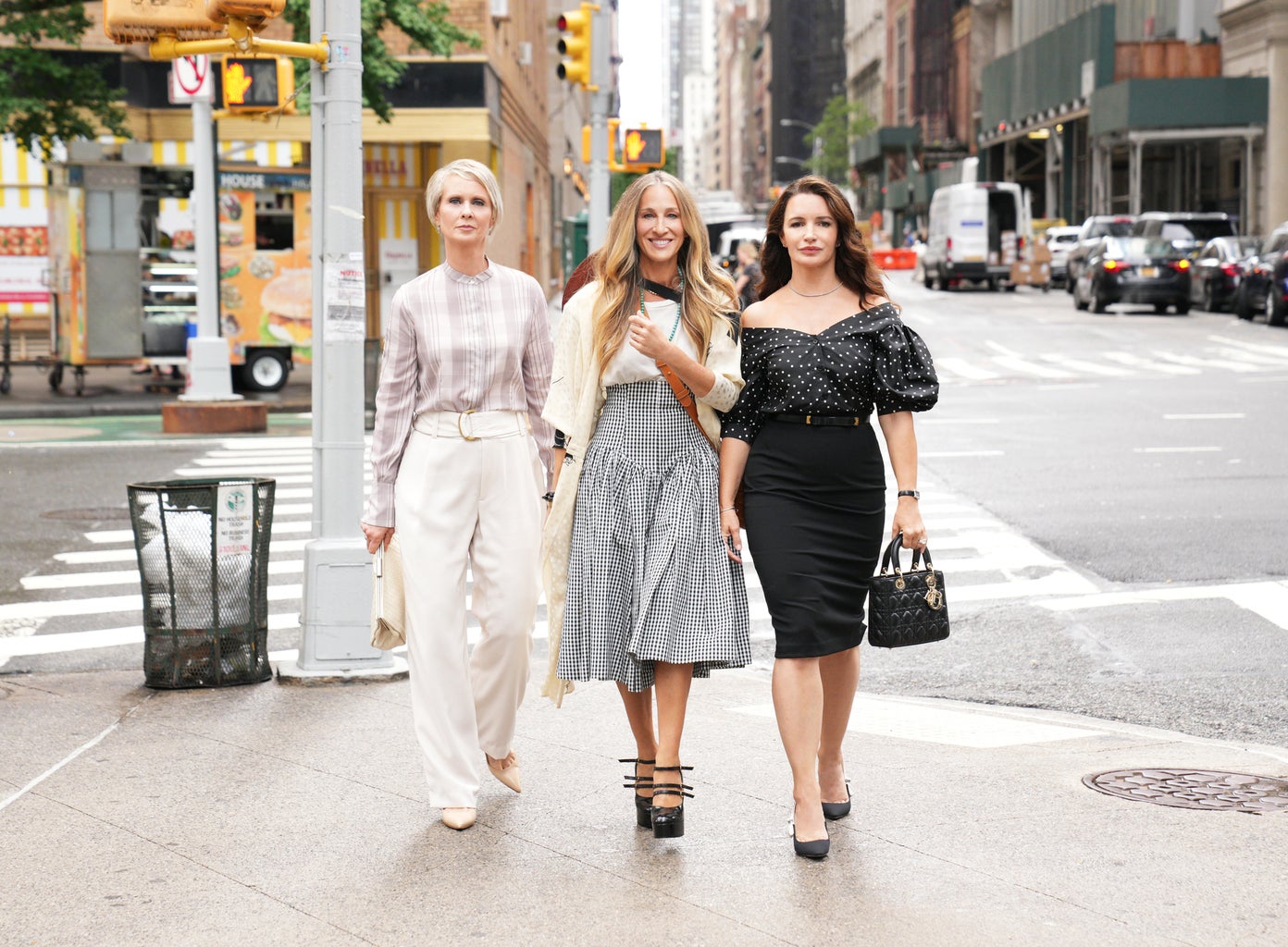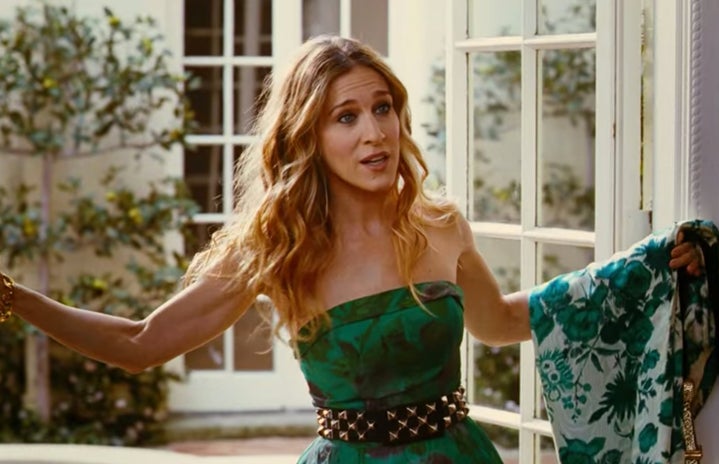I discovered Sex in the City on a cloudy April midnight, the shouts of Telegraph still audible from my bedroom window, the scent of someone else’s cigarette clinging to my hair. After scrubbing that Friday’s party residue from my body, tying my wet hair into braids, and texting my besties that I’d indeed made it home safely, I curled up in my comforter with my iPad opened to Netflix. In the banner at the top of the screen was the infamous title: Sex in the City.
My curiosity was piqued. I’d heard of Sex in the City, sure, but wasn’t it outdated? I clicked the banner and was soon sucked into the romanticized version of New York City.
The show felt familiar, not just from the audio bits popularized on Tiktok but also from the feeling of femininity that the protagonists were experiencing. There were rituals practiced episode to episode that I recognized in my own life. Debriefs over brunch that definitely inconvenienced nearby customers, the mad dash to choose the right outfit, get ready and be out the door only slightly late, lifeline calls where your friends try desperately to talk you out of a poor decision you’re about to make.
After long nights, I found myself comforted by Carrie’s endless wonderings. There were some I echoed. Is there such a thing as love at first sight? Is it still possible to date outside of one’s class? Is it better to fake than to be alone? While on paper I should have had nothing in common with the 30-something year old Manhattan-based protagonists, I nevertheless saw parallels between my life and theirs.
A lot of questions they grappled with are grappled with by my friends and I to this day. What is the line between having fun and being deemed a “slut”? How do you vet a potential romantic partner–how far is too far is too far? How can you tell if someone is genuinely interested in you? Carrie’s endless wonderings don’t feel far from my internal monologue.
There are definitive differences between the lives of my friends and the lives of Carrie’s group. My friends are not all white, let alone all straight. The same goes for our romantic interests, many of whom are encountered both online and in person.
Explaining it to my best friend after having watched much more, I told her that Sex in the City still holds up because “the conditions of womanhood have not changed enough for [it] to be obsolete.” She laughed and made me write my own quote down in my notes app.
Thinking about it a week later, I still stand by what I said. Sex in the City portrays the messiness and hypocrisy of womanhood in a way that still holds up. Getting ready for a night out still means walking the line of dressing “sexy” versus “slutty.” It still means doing makeup with your friends, hyping each other up and picking at yourselves in the mirror, and giggling until you can’t breathe. Going out still means balancing having fun and being safe, having run-ins with people from past-lives, wing-maning your best friends and then wondering why you’re still sitting alone, and trying to decipher the intentions of the strangers around you.
Sex in the City also portrays the importance of female friendships. In this economy, deep female friendships, for health and happiness, are maybe the best investment a person can make. The show demonstrates time and time again how female friendships are vital for survival–telling you when you go to far, stalking your first dates to ensure you won’t be kidnapped, holding your hair back when you need to throw up, and giving each other the love and support needed to face the trials, tribulations, and brutal rejections of modern day life.

In a time where women are still disproportionately judged for hooking up with multiple people, still mercilessly shamed for their clothing and bodies, still expected to be in relationships and then married by a certain age after a certain number of single independent years, and still expected to make it look easy while juggling these expectations, Charlotte’s line, “Maybe our friends are our soulmates and guys are just people to have fun with,” is still a relatable reaction.
I stick by what I said while pitching my best friend this show–Sex in the City is still relevant because “the conditions of womanhood have not changed enough for [it] to be obsolete.”



